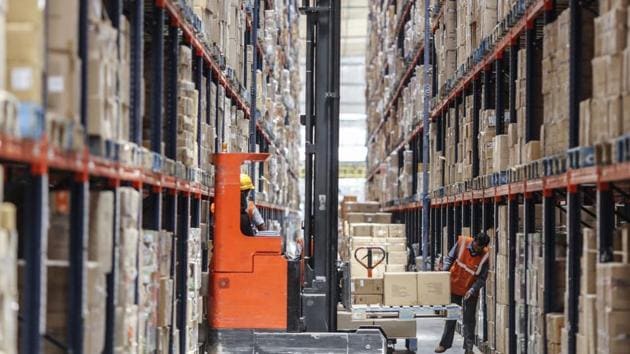IMF says India to grow at 1.9% in 2020; world -3%
IMF even expects FY20 growth at 4.2% as against 5% estimated by India’s statistics department.
The International Monetary Fund (IMF) on Tuesday slashed its FY21 growth projection for India to 1.9% from 5.8% projected in January, holding that the ‘Great Lockdown’ to combat the Covid-19 outbreak will throw the world economy into the worst recession since the Great Depression in 1930s.

The coronavirus pandemic came at a time when India’s economy was already slowing, due to persistent financial sector weaknesses. The severe disruption to economic activities by Covid-19, both through demand and supply shocks, has overtaken the incipient recovery in the Indian economy leading to massive job losses. IMF even expects FY20 growth at 4.2% as against 5% estimated by India’s statistics department.
Assuming a baseline scenario, in which the pandemic fades in the second half of 2020 and containment efforts are gradually unwound, the IMF in its biannual World Economic Outlook projected the global economy to contract sharply by 3% in 2020, much worse than during the 2008-09 financial crisis. For India, it estimated a sharp economic recovery in FY22 at 7.4%.
However, investment bank Barclays on Tuesday pared its growth forecast for India to 0% for calendar year 2020 from its earlier projection of 2.5%, as Prime Minister Narendra Modi extended the ongoing nationwide lockdown till May 3, holding that the economic impact is set to be worse than it had expected earlier. Rating agency Icra Ltd went a step further, projecting the economic growth at anywhere between -1% and 1% in FY21, as it expects gross domestic product (GDP) to contract 10-15% in the June quarter.
Barclays said combined with the disruption in several manufacturing and service sectors, it now estimates that the economic loss in 2020 will be close to $234.4 billion or 8.1% of GDP, assuming that India will remain under a partial lockdown at least until the end of May. “This is much higher than the $120 billion we had estimated earlier for roughly the same time period previously,” it said.
Even as it projected a strong recovery for global economy at 5.8% in 2021, IMF said the recovery could be weaker than expected after the spread of the virus has slowed, for a host of other reasons. “These include lingering uncertainty about contagion, confidence failing to improve, and establishment closures and structural shifts in firm and household behaviour, leading to more lasting supply chain disruptions and weakness in aggregate demand,” it added.
Nomura on Monday said it expects India’s GDP to contract by 0.5% in 2020, revised downward from its earlier estimate of 4.5%, assuming 6.5% dip in economic growth in the June quarter.
Admitting that there is extreme uncertainty around its global growth forecast, IMF in its outlook said many countries face a multi-layered crisis comprising a health shock, domestic economic disruptions, plummeting external demand, capital flow reversals, and a collapse in commodity prices.
IMF said because the economic fallout reflects particularly acute shocks in specific sectors, policymakers will need to implement substantial targeted fiscal, monetary, and financial market measures to support affected households and businesses.
“Fiscal measures will need to be scaled up if the stoppages to economic activity are persistent, or the pickup in activity as restrictions are lifted is too weak. Broad-based fiscal stimulus can pre-empt a steeper decline in confidence, lift aggregate demand, and avert an even deeper downturn. But it would most likely be more effective once the outbreak fades and people are able to move about freely,” it added.
Stay informed on Business News, TCS Q4 Results Live along with Gold Rates Today, India News and other related updates on Hindustan Times Website and APPs



